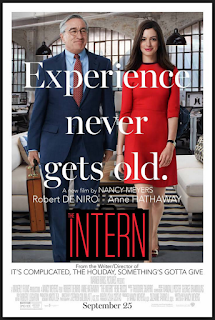These days Josh Duggar is on the hot seat, but his 15 minutes of fame will flicker out soon enough. The next time around it will be a big name celebrity, a well known athlete, some politician, or a famous megachurch pastor who gets caught, forgive the pun, with his pants down.
Of course Duggar "is sorry," people say, but only because he got caught with an online "Ashley Madison" affair seeking account. And, Duggar's wife reportedly is going to forgive him and move on, which has people all over the place infuriated, and this has people asking the question is he really sincerely sorry?
Let's rephrase the question: If someone continues to misbehave, but only quits after their deeds come to light, are they truly remorseful..., or are they only sorry because they were caught in the act?
I'm going to say, a person who gets caught red-handed can be authentically sorrowful, even though they didn't slow down in their wickedness until they were exposed. Why? Well, in a perfect world people would feel bad about their actions and then quit; but we don't live in a perfect world, because in a perfect world people don't turn their lives into train-wrecks. And in a perfect world people don't need to quit bad behavior, because they avoid hurting their loved ones before they even get started.
Maybe, just maybe, the best thing that can happen to some people, ones who are entrapped in a dark sin, a bondage they can't break free from, is to get caught. For some people, they only will stop when they are confronted with their dark secret. Being sorry doesn't depend on if you get caught or not, being sorry doesn't depend on the reason why you quit, being sorry rests somewhere else.
Sure, to those on the short end of the stick, it would be more believable that the other person is truly remorseful if they quit all on their own, and then fessed up. That's not too realistic, not for any of us. And, there's a little bloodthirstiness on the line when people on the outside refuse to be satisfied by another person's apology.
Again, why am I convinced that a person can continue to make matters worse right up until they get busted, and they can still be sincerely apologetic and completely remorseful and 100% genuine when they say they are sorry? I read a story about an ancient king who had a philandering problem.
This king who had his way with the women got an attractive women pregnant, and then killed her husband after a botched attempt to cover up the pregnancy. It was only after the king was confronted by a prophet did the king feel bad about his actions. Afterward this king wrote one of the most famous pieces of poetry in all of history. I'll share a snippet of the poem:
“8 Let me hear joy and gladness;
let the bones that you have broken rejoice.
9 Hide your face from my sins,
and blot out all my iniquities.
10 Create in me a clean heart, O God,
and renew a right spirit within me.
11 Cast me not away from your presence,
and take not your Holy Spirit from me.
12 Restore to me the joy of your salvation,
and uphold me with a willing spirit.
13 Then I will teach transgressors your ways,
and sinners will return to you.
14 Deliver me from bloodguiltiness, O God,
O God of my salvation,
and my tongue will sing aloud of your righteousness.
15 O Lord, open my lips,
and my mouth will declare your praise.
16 For you will not delight in sacrifice, or I would give it;
you will not be pleased with a burnt offering.
17 The sacrifices of God are a broken spirit;
a broken and contrite heart, O God, you will not despise.” (PS 51:8-17)
Just for the record, I hadn't heard of Josh Duggar before his fall from grace, and I've never watched their family's reality show. I hope for the best for him and his wife, I've learned in counseling people that you can forgive anything if you want to, and if you let God heal your wounded heart.

















